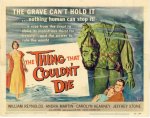BleedGopher
Well-known member
- Joined
- Nov 11, 2008
- Messages
- 64,135
- Reaction score
- 23,051
- Points
- 113
per Brandon:
Jerry Kill seemed to be on the cusp of greatness.
He lifted Minnesota out of the doldrums, sending the Gophers to a bowl game and an eight-win season while earning the honor of the Big Ten’s coach of the year in 2014. His health, however, took a turn for the worse. Epileptic seizures caused him to miss games, and a year later he resigned as Minnesota’s head coach.
His rise was over just as quickly as it seemed to be gaining momentum at the age of 53.
Five years later he’s working alongside TCU head coach Gary Patterson, his longtime friend and former college teammate. Their working relationship is simple: Patterson is the head coach of TCU and its defense, and Kill is the head coach of the offense as an “assistant to the head coach.” Kill is not a game-day coach, which allows him to focus on his health. He’s an evaluator, strategist and consultant, something he has done in these years after Minnesota in various gigs at Kansas State, Southern Illinois, Rutgers and Virginia Tech.
Still, one wonders where Kill would be today had health problems not derailed his career.
“I wish I could go back, but I can't (and) won’t do it because of my health,” Kill said. “But I would be a better head coach now than I was even before because I've got to go to all these places.”
Kill was most recently a special assistant at Virginia Tech, where he was hired during the season and was tasked with improving the running game. The Hokies won six of their last eight games. Then his friend came calling.
Kill’s name was hot when he led Minnesota, but he wasn’t necessarily the up-and-coming young coach pundits would usually splash across sports columns as the next big thing in the coaching ranks. Health issues plagued him in 2013 and 2014, forcing him to take a leave of absence at the apex of the Gophers’ hot start in 2013. He retired after seven games because of his worsening health in 2015.
If seizures and battles with cancer hadn’t slowed Kill, it’s not difficult to wonder what could have been. Might Kill have taken Minnesota to new heights instead of resigning in 2015? Would he have potentially landed a top-tier coaching job elsewhere in the country?
“Minnesota has a chance to win the national championship, but he'd have been at one of those elite 20 schools that maybe could have competed with a little more regularly for a national championship,” said Dennis Franchione, Kill’s mentor, former coach and boss at Pittsburgh State.
Kill refers to himself as the fix-it man, but his lasting legacy will also be filled with what-ifs. He took a one-win Southern Illinois program to multiple, double-digit win seasons. He led Northern Illinois to a 10-win year. He led Minnesota to eight-win seasons in back-to-back years for only the second time in 52 years and the Gophers landed a New Year’s Day bowl game for the first time in 53 years. Four years after Kill’s departure, P.J. Fleck led the Gophers to 11 wins and a top-10 ranking in 2019.
“The biggest legacy that I want is I gave every ounce to this game of football and everything I had — probably cost my head coaching career,” Kill said. “…You know, I've been through a lot mentally, but I've handled it I think is good as I can. And I think everybody that knows me and you talk to anybody in the public, they know what Jerry Kill stands for.”

 247sports.com
247sports.com
Go Gophers!!
Jerry Kill seemed to be on the cusp of greatness.
He lifted Minnesota out of the doldrums, sending the Gophers to a bowl game and an eight-win season while earning the honor of the Big Ten’s coach of the year in 2014. His health, however, took a turn for the worse. Epileptic seizures caused him to miss games, and a year later he resigned as Minnesota’s head coach.
His rise was over just as quickly as it seemed to be gaining momentum at the age of 53.
Five years later he’s working alongside TCU head coach Gary Patterson, his longtime friend and former college teammate. Their working relationship is simple: Patterson is the head coach of TCU and its defense, and Kill is the head coach of the offense as an “assistant to the head coach.” Kill is not a game-day coach, which allows him to focus on his health. He’s an evaluator, strategist and consultant, something he has done in these years after Minnesota in various gigs at Kansas State, Southern Illinois, Rutgers and Virginia Tech.
Still, one wonders where Kill would be today had health problems not derailed his career.
“I wish I could go back, but I can't (and) won’t do it because of my health,” Kill said. “But I would be a better head coach now than I was even before because I've got to go to all these places.”
Kill was most recently a special assistant at Virginia Tech, where he was hired during the season and was tasked with improving the running game. The Hokies won six of their last eight games. Then his friend came calling.
Kill’s name was hot when he led Minnesota, but he wasn’t necessarily the up-and-coming young coach pundits would usually splash across sports columns as the next big thing in the coaching ranks. Health issues plagued him in 2013 and 2014, forcing him to take a leave of absence at the apex of the Gophers’ hot start in 2013. He retired after seven games because of his worsening health in 2015.
If seizures and battles with cancer hadn’t slowed Kill, it’s not difficult to wonder what could have been. Might Kill have taken Minnesota to new heights instead of resigning in 2015? Would he have potentially landed a top-tier coaching job elsewhere in the country?
“Minnesota has a chance to win the national championship, but he'd have been at one of those elite 20 schools that maybe could have competed with a little more regularly for a national championship,” said Dennis Franchione, Kill’s mentor, former coach and boss at Pittsburgh State.
Kill refers to himself as the fix-it man, but his lasting legacy will also be filled with what-ifs. He took a one-win Southern Illinois program to multiple, double-digit win seasons. He led Northern Illinois to a 10-win year. He led Minnesota to eight-win seasons in back-to-back years for only the second time in 52 years and the Gophers landed a New Year’s Day bowl game for the first time in 53 years. Four years after Kill’s departure, P.J. Fleck led the Gophers to 11 wins and a top-10 ranking in 2019.
“The biggest legacy that I want is I gave every ounce to this game of football and everything I had — probably cost my head coaching career,” Kill said. “…You know, I've been through a lot mentally, but I've handled it I think is good as I can. And I think everybody that knows me and you talk to anybody in the public, they know what Jerry Kill stands for.”

Where would Jerry Kill be today if health didn't end career?
Where would Jerry Kill be today without his health issues?
 247sports.com
247sports.com
Go Gophers!!


